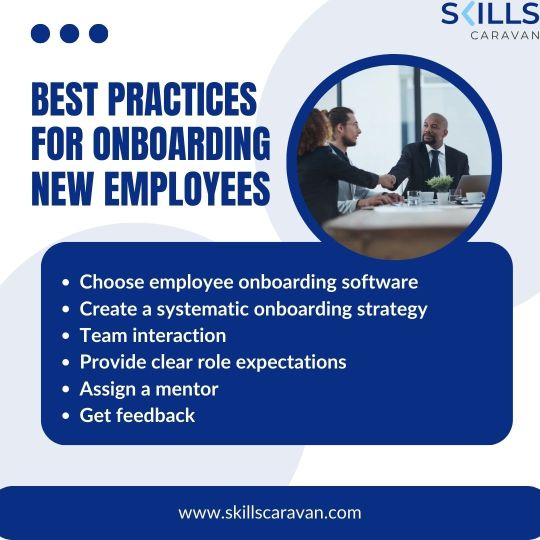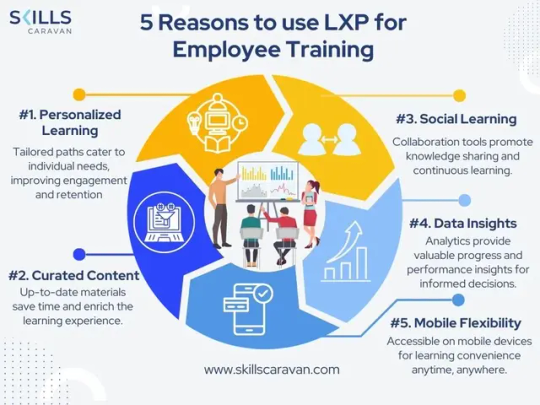Don't wanna be here? Send us removal request.
Text

Discover how integrating social learning features into your LMS or LXP can enhance collaboration among employees, leading to improved knowledge retention and engagement.
0 notes
Text

Foster a culture of continuous learning in your healthcare organization by utilizing an LMS that supports ongoing education, skill development, and professional growth opportunities for all employees.
0 notes
Text

Ensure your organization meets compliance requirements with effective POSH (Prevention of Sexual Harassment) training through a robust LMS designed for interactive learning experiences.
0 notes
Text

Learn how an LMS can elevate your sales training programs by providing structured learning paths, tracking progress, and ensuring compliance with industry standards.
0 notes
Text

Understand the differences between Learning Management Systems (LMS) and Learning Experience Platforms (LXP). This insight will help you select the best solution for your organization's training goals.
0 notes
Text

Explore the benefits of preboarding in your organization. A proactive approach to employee engagement before their first day can enhance retention and satisfaction.
0 notes
Text

Discover how a dedicated healthcare Learning Management System (LMS) can streamline your onboarding process, ensuring new employees are equipped with essential knowledge and skills from day one.
0 notes
Text

Leverage advanced analytics within your LMS to track employee progress, identify skill gaps, and refine training strategies for better outcomes in workforce development.
0 notes
Text

Discover how data-driven insights from LMS and LXP can help organizations refine their training strategies and enhance overall employee performance.
0 notes
Text

Highlight the significance of a robust onboarding program supported by an LMS, ensuring new hires are well-prepared and aligned with company goals from day one.
0 notes
Text

Delve into the rise of Learning Experience Platforms and their role in creating personalized, engaging learning experiences that cater to modern workforce needs.
0 notes
Text

Find out how integrating LMS and LXP can facilitate cross-training initiatives, enabling employees to develop diverse skill sets that benefit the organization.
0 notes
Text

Learn how specialized LMS solutions can enhance sales training, equipping teams with the skills and knowledge they need to excel in a competitive market.
0 notes
Text

Understand the differences between Learning Experience Platforms (LXP) and Learning Management Systems (LMS) to determine which best meets your organization’s training needs.
0 notes
Text

Explore the importance of preboarding in the employee experience and how effective LMS solutions can streamline this process, fostering early engagement and retention.
0 notes
Text

Discover how Learning Management Systems (LMS) are revolutionizing training in the healthcare sector, ensuring compliance and enhancing employee skills for better patient care.
0 notes
Text
How LMS Solutions Enhance Compliance Training Across Regulated Industries
In today's fast-paced business environment, compliance training has become a critical component for organizations operating in regulated industries. Ensuring that employees understand and adhere to legal and regulatory requirements is not just a matter of avoiding penalties; it is essential for maintaining a safe and ethical workplace. Learning Management Systems (LMS) provide the tools necessary to streamline compliance training, making it more effective and efficient. This article explores how LMS solutions enhance compliance training across various regulated industries, focusing on their key features and benefits.

The Importance of Compliance Training
Compliance training is vital for organizations in sectors such as healthcare, finance, manufacturing, and more. It encompasses a wide range of topics, including workplace safety, data protection, ethical conduct, and industry-specific regulations. Failure to provide adequate compliance training can lead to serious consequences, including legal penalties, financial losses, and damage to an organization's reputation.
Moreover, effective compliance training fosters a culture of accountability within the workplace. When employees are well-informed about the rules and regulations governing their work environment, they are more likely to take ownership of their responsibilities and contribute positively to the organization’s goals. By implementing an LMS tailored for compliance training, businesses can create a structured learning environment that addresses employee needs efficiently.
Benefits of Using an LMS for Compliance Training
Implementing an LMS for compliance training offers numerous advantages over traditional training methods. Here are some key benefits:
1. Centralized Training Resources
An LMS provides a centralized platform where all compliance training materials can be stored and accessed easily. This eliminates the need for physical materials and ensures that employees have access to the latest information at all times. By centralizing resources, organizations can maintain consistency in their training programs and ensure that all employees receive the same information.
2. Automated Tracking and Reporting
One of the most significant advantages of using an LMS is its ability to automate tracking and reporting processes. Organizations can easily monitor employee progress, track course completions, and generate reports for audits or regulatory inspections with just a few clicks. This automation reduces administrative burdens on HR teams while ensuring adherence to regulatory requirements.
For example, an LMS can automatically notify employees about upcoming compliance training deadlines or recertification requirements, helping organizations stay compliant without constant oversight.
3. Scalability
As organizations grow, so do their compliance training needs. An LMS allows businesses to scale their training programs effortlessly, accommodating new employees or changes in regulatory requirements without significant additional costs. This scalability is particularly important in today’s dynamic business environment, where companies must respond quickly to market changes.
4. Enhanced Engagement Through Gamification
Many modern LMS solutions incorporate gamification elements that make learning more engaging. Features such as points, badges, and leaderboards motivate employees to complete courses while making learning enjoyable. Engaged learners are more likely to retain information and apply what they have learned in real-world scenarios.
For instance, a company might implement a gamified compliance training program where employees earn rewards for completing modules or achieving high scores on assessments. This approach not only boosts engagement but also reinforces the importance of compliance within the organization.
Key Features of an Effective Compliance Training LMS
When selecting an LMS for compliance training, organizations should look for specific features that enhance the effectiveness of their programs:
1. Customizable Learning Paths
A robust LMS should allow organizations to create customized learning paths tailored to different roles or departments within the company. This ensures that employees receive relevant training based on their specific job functions and compliance requirements.
2. Mobile Accessibility
With the increasing prevalence of remote work and mobile devices, having a mobile-friendly LMS is essential for ensuring that employees can engage with training materials anytime and anywhere. This flexibility allows employees to complete compliance training at their convenience.
3. Real-Time Analytics
Effective analytics capabilities enable organizations to track learner progress continuously and engagement levels over time. These insights help identify areas where additional support may be needed and inform future training initiatives.
4. Integration Capabilities
The ability to integrate with other systems—such as HR software or customer relationship management (CRM) platforms—enhances the overall efficiency of compliance training efforts by streamlining data management processes.
Enhancing Customer Training with LMS Solutions
In addition to internal employee training, LMS solutions are invaluable for customer training initiatives as well. Organizations can leverage these systems to create engaging educational experiences for customers who need to understand how to use products or services effectively.
1. Self-Paced Learning Modules
An effective customer training LMS should offer self-paced learning modules that allow customers to access training materials at their convenience. With an LMS solution designed for customer education, these modules can be updated easily based on customer feedback or product changes—ensuring users always have access to the latest information.
2. Interactive Content Delivery
AI-enhanced learning platforms enable organizations to deliver interactive content that keeps customers engaged throughout their learning journey. Features such as quizzes, simulations, and gamified elements encourage active participation while improving knowledge retention.
For example, a software company might use an LMS to create interactive tutorials that guide customers through complex features step-by-step. By providing hands-on experiences in a controlled environment, customers become more confident in using the product effectively.
The Role of Learning and Development AI in Compliance Training

Incorporating learning and development AI into your LMS can further enhance your compliance training initiatives. AI technologies can analyze vast amounts of data from employee interactions with training materials—providing insights into how well individuals understand compliance topics or product features.
For instance, AI-driven analytics can identify common areas where employees struggle or frequently miss questions on assessments. This information allows organizations to adjust their training content accordingly—ensuring that critical topics receive additional focus in future sessions.
Moreover, AI can personalize learning experiences by recommending specific courses based on individual performance metrics or past interactions with the LMS. This level of customization not only improves engagement but also ensures that employees receive targeted support where it matters most.
Conclusion: Achieving Regulatory Success with an LMS
In conclusion, implementing a Learning Management System (LMS) tailored for compliance training is essential for organizations looking to achieve regulatory success in today’s complex environment. By centralizing resources, automating tracking processes, enhancing engagement through gamification—and leveraging AI technologies—businesses can create effective compliance programs that not only meet legal obligations but also foster a culture of accountability among employees.
As you explore potential solutions for your organization’s compliance training needs—remember that investing in an effective SaaS learning management system will ultimately empower your workforce while safeguarding your business against non-compliance risks! Start evaluating your options today—and take the first step towards ensuring regulatory success!
0 notes